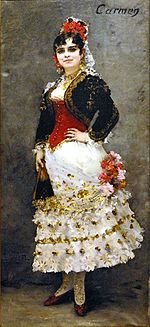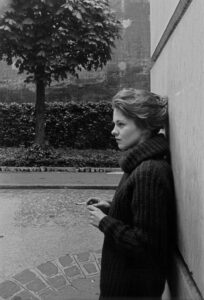Dear Zazie, Here is today’s Lovers’ Chronicle from Mac Tag dedicated to his muse. Follow us on twitter @cowboycoleridge. Rhett
The Lovers’ Chronicle
Dear Muse,
“Well nothing at this point”
if one counts what has been written
“There is that”
you are better at sayin’ it
and i am better at writin’ it
“Where did this one come from”
from the James Merrill poem,
-Yet something in the sad
End-of-season light-
“And here we are”
in the end of season light with
nary a hint of sadness in sight
© copyright 2023 mac tag/cowboycoleridge all rights reserved
one knows about the obvious
but there is no way in hell
to anticipate how it feels
just to be with you…
days grow longer, winter lingers
ponder turnin’s taken by life
in the changin’ light
you are everywhere
beside me, unmasked,
in laughter and pain
in partin’, hold on
more to be said
© copyright 2021 mac tag/cowboy coleridge all rights reserved
© copyright 2020 mac tag/cowboy coleridge all rights reserved
one knows about the obvious
but there is no way in hell
to anticipate how it feels
just to be with you…
days grow longer, winter lingers
walk among the fallin’ flakes
ponder turnin’s taken by life
in the changin’ light
you are everywhere
beside me, unmasked,
in laughter and pain
in partin’, hold on
yet somethin’
in the sad left unsaid
listen now, close
lover, friend
this is not farewell,
not now
© copyright 2019 mac tag/cowboy coleridge all rights reserved
“I must tell you what happens
when I read one of your poems.
I enjoy them and I want to reply
in a similar fashion, but I’m no poet.
So I step away, and search
for a smart, fun, sexy,
interesting response.
Then life intervenes
and I never respond.”
“In my perfect world,
I would read
one of your poems
and then paint a response.
It would take all day.
I wish life could be lived
like this, for love
and nothing more.”
“I’m already deep
in a bottle of wine.
Wish you were here
with some Sambuca.
The night would end
in places we have only
dared to dream.”
darlin’,
were wishes
mine to command,
i would be there
and it would be
beyond our dreams
© copyright 2018 mac tag/cowboy coleridge all rights reserved
at the station, tired,
waitin’ for the train
a clock tolls
and as is often the case
thoughts of you emerge
of course, with you
a song comes
a seguidilla, the one
we heard in Seville
before a night
of dancin’ and passion
i will never forget
the way you looked
standin’ there
in the late winter dusk
by the Glorieta de Bécquer
one knows about loss
but there is no accountin’
for what was left unsaid
in the end-of-it-all light
© copyright 2017 mac tag/cowboy Coleridge all rights reserved
1875 – Georges Bizet’s opera Carmen receives its première at the Opéra-Comique in Paris.
Carmen is an opera in four acts by French composer Georges Bizet. The libretto was written by Henri Meilhac and Ludovic Halévy, based on a novella of the same title by Prosper Mérimée. Bizet died suddenly after the 33rd performance, unaware that the work would achieve international acclaim within the following ten years. Carmen has since become one of the most popular and frequently performed operas in the classical canon; the “Habanera” from act 1 and the “Toreador Song” from act 2 are among the best known of all operatic arias.
The opera is written in the genre of opéra comique with musical numbers separated by dialogue. It is set in southern Spain and tells the story of the downfall of Don José, a naïve soldier who is seduced by the wiles of the fiery gypsy Carmen. José abandons his childhood sweetheart and deserts from his military duties, yet loses Carmen’s love to the glamorous toreador Escamillo, after which José kills her in a jealous rage. The depictions of proletarian life, immorality, and lawlessness, and the tragic death of the main character on stage, broke new ground in French opera and were highly controversial. Audiences were shocked and scandalized.
After the premiere, most reviews were critical, and the French public was generally indifferent. Carmen initially gained its reputation through a series of productions outside France, and was not revived in Paris until 1883. Thereafter it rapidly acquired popularity at home and abroad. Carmen forms the bridge between the tradition of opéra comique and the realism or verismo that characterised late 19th-century Italian opera.
The music of Carmen has been widely acclaimed for brilliance of melody, harmony, atmosphere, and orchestration, and for the skill with which Bizet musically represented the emotions and suffering of his characters. After the composer’s death, the score was subject to significant amendment, including the introduction of recitative in place of the original dialogue. There is no standard edition of the opera, and different views exist as to what versions best express Bizet’s intentions. The opera has been recorded many times since the first acoustical recording in 1908, and the story has been the subject of many screen and stage adaptations.


Synopsis
- Place: Seville, Spain, and surrounding hills
- Time: Around 1820
Act 1
A square, in Seville. On the right, a door to the tobacco factory. At the back, a bridge. On the left, a guardhouse.
A group of soldiers relaxes in the square, waiting for the changing of the guard and commenting on the passers-by (“Sur la place, chacun passe”). Micaëla appears, seeking José. Moralès tells her that “José is not yet on duty” and invites her to wait with them. She declines, saying she will return later. José arrives with the new guard, which is greeted and imitated by a crowd of urchins (“Avec la garde montante”).

As the factory bell rings, the cigarette girls emerge and exchange banter with young men in the crowd (“La cloche a sonné”). Carmen enters and sings her provocative habanera on the untameable nature of love (“L’amour est un oiseau rebelle”). The men plead with her to choose a lover, and after some teasing she throws a flower to Don José, who thus far has been ignoring her but is now annoyed by her insolence.
As the women go back to the factory, Micaëla returns and gives José a letter and a kiss from his mother (“Parle-moi de ma mère!”). He reads that his mother wants him to return home and marry Micaëla, who retreats in shy embarrassment on learning this. Just as José declares that he is ready to heed his mother’s wishes, the women stream from the factory in great agitation. Zuniga, the officer of the guard, learns that Carmen has attacked a woman with a knife. When challenged, Carmen answers with mocking defiance (“Tra la la… Coupe-moi, brûle-moi”); Zuniga orders José to tie her hands while he prepares the prison warrant. Left alone with José, Carmen beguiles him with a seguidilla, in which she sings of a night of dancing and passion with her lover—whoever that may be—in Lillas Pastia’s tavern. Confused yet mesmerised, José agrees to free her hands; as she is led away she pushes her escort to the ground and runs off laughing. José is arrested for dereliction of duty.
Act 2
Lillas Pastia’s Inn
Two months have passed. Carmen and her friends Frasquita and Mercédès are entertaining Zuniga and other officers (“Les tringles des sistres tintaient”) in Pastia’s inn. Carmen is delighted to learn of José’s release from two month’s detention. Outside, a chorus and procession announces the arrival of the toreador Escamillo (“Vivat, vivat le Toréro”). Invited inside, he introduces himself with the “Toreador Song” (“Votre toast, je peux vous le rendre”) and sets his sights on Carmen, who brushes him aside. Lillas Pastia hustles the crowds and the soldiers away.
When only Carmen, Frasquita and Mercédès remain, the smugglers Dancaïre and Remendado arrive and reveal their plans to dispose of some recently acquired contraband (“Nous avons en tête une affaire”). Frasquita and Mercédès are keen to help them, but Carmen refuses, since she wishes to wait for José. After the smugglers leave, José arrives. Carmen treats him to a private exotic dance (“Je vais danser en votre honneur … La la la”), but her song is joined by a distant bugle call from the barracks. When José says he must return to duty, she mocks him, and he answers by showing her the flower that she threw to him in the square (“La fleur que tu m’avais jetée”). Unconvinced, Carmen demands he show his love by leaving with her. José refuses to desert, but as he prepares to depart, Zuniga enters looking for Carmen. He and José fight, and are separated by the returning smugglers, who restrain Zuniga. Having attacked a superior officer, José now has no choice but to join Carmen and the smugglers (“Suis-nous à travers la campagne”).
Act 3
A wild spot in the mountains
Carmen and José enter with the smugglers and their booty (“Écoute, écoute, compagnons”); Carmen has now become bored with José and tells him scornfully that he should go back to his mother. Frasquita and Mercédès amuse themselves by reading their fortunes from the cards; Carmen joins them and finds that the cards are foretelling her death, and José’s. The women depart to suborn the customs officers who are watching the locality. José is placed on guard duty.
Micaëla enters with a guide, seeking José and determined to rescue him from Carmen (“Je dis que rien ne m’épouvante”). On hearing a gunshot she hides in fear; it is José, who has fired at an intruder who proves to be Escamillo. José’s pleasure at meeting the bullfighter turns to anger when Escamillo declares his infatuation with Carmen. The pair fight (“Je suis Escamillo, toréro de Grenade”), but are interrupted by the returning smugglers and girls (“Holà, holà José”). As Escamillo leaves he invites everyone to his next bullfight in Seville. Micaëla is discovered; at first, José will not leave with her despite Carmen’s mockery, but he agrees to go when told that his mother is dying. As he departs, vowing he will return, Escamillo is heard in the distance, singing the toreador’s song.
Act 4
A square in Seville. At the back, the walls of an ancient amphitheatre
Zuniga, Frasquita and Mercédès are among the crowd awaiting the arrival of the bullfighters (“Les voici ! Voici la quadrille!”). Escamillo enters with Carmen, and they express their mutual love (“Si tu m’aimes, Carmen”). As Escamillo goes into the arena, Frasquita warns Carmen that José is nearby, but Carmen is unafraid and willing to speak to him. Alone, she is confronted by the desperate José (“C’est toi ! C’est moi !”). While he pleads vainly for her to return to him, cheers are heard from the arena. As José makes his last entreaty, Carmen contemptuously throws down the ring he gave her and attempts to enter the arena. He then stabs her, and as Escamillo is acclaimed by the crowds, Carmen dies. José kneels and sings “Ah! Carmen! ma Carmen adorée!”; as the crowd exits the arena, José confesses to killing the woman he loved.
| Beatrice Wood | |
|---|---|

Beatrice Wood, 1908
|
|

Today is the birthday of Beatrice Wood (San Francisco, March 3, 1893 – March 12, 1998 Ojai, California); artist and studio potter involved in the Avant Garde movement in the United States. She founded The Blind Man magazine in New York City with French artist Marcel Duchamp and writer Henri-Pierre Roché in 1917. She had earlier studied art and theater in Paris, and was working in New York as an actress. She later worked at sculpture and pottery. Wood was characterized as the “Mama of Dada.”
She partially inspired the character of Rose DeWitt Bukater in James Cameron’s 1997 film, Titanic after the director read Wood’s autobiography while developing the film. Beatrice Wood died nine days after her 105th birthday in Ojai, California.
The onset of World War I forced Wood to return to the United States. She continued acting with a French Repertory Company in New York City, performing over sixty roles in two years. She worked for several years performing on the stage.

Wood’s involvement in the Avant Garde began with her introduction to Marcel Duchamp. He and his friend Henri-Pierre Roché, a man fourteen years her senior, met her in New York in 1916. The three worked together to create The Blind Man, a magazine that was one of the earliest manifestations of the Dada art movement in the United States. The publication was intended to defend the submission of a urinal by R. Mutt to the First Exhibition of the Society of Independent Artists in April 1917. Wood wrote the oft-quoted statement that appeared in the publication as an unsigned editorial: “As for plumbing, that is absurd. The only works of art America has given are her plumbing and her bridges.”
Though she was most involved with Roché, the two often spent time with Duchamp, creating a love triangle. Since the late 20th century, biographies of Wood have associated Roché’s 1956 novel Jules et Jim (and the 1962 film adaptation), with the relationship among Duchamp, Wood, and Roché. Other sources link their triangle to Roché’s unfinished novel, Victor.
Beatrice Wood commented on this topic in her 1985 autobiography, I Shock Myself:
Roché lived in Paris with his wife Denise, and had by now written Jules et Jim … Because the story concerns two young men who are close friends and a woman who loves them both, people have wondered how much was based on Roché, Marcel, and me. I cannot say what memories or episodes inspired Roché, but the characters bear only passing resemblance to those of us in real life!
More likely, Jules et Jim is about the triangle among Roché, German writer Franz Hessel, and Helen Grund, who married Hessel.
Marcel Duchamp encouraged her to draw, inviting her to use his studio as a place in which to work. She later illustrated her autobiography, “I Shock Myself”. She signed her early drawings “Bea,” her name in French, but after taking up pottery, she signed most of her work as “Beato,” her nickname. In 2014, a series of her drawings were exhibited as part of the permanent collection of the Santa Barbara Museum of Art in Santa Barbara, California.
At the age of 90, Wood became a writer, having been encouraged to write by her friend, Anais Nin. Her best-known book is her autobiography, I Shock Myself (1985). When asked the secret to her longevity, she would respond, “I owe it all to chocolate and young men.”
Gallery

Perfect lovers
 Today is the birthday of Arnold Newman (Arnold Abner Newman; Manhattan; March 3, 1918 – June 6, 2006 Manhattan); photographer, noted for his “environmental portraits” of artists and politicians. He was also known for his carefully composed abstract still life images.
Today is the birthday of Arnold Newman (Arnold Abner Newman; Manhattan; March 3, 1918 – June 6, 2006 Manhattan); photographer, noted for his “environmental portraits” of artists and politicians. He was also known for his carefully composed abstract still life images.
Newman is often credited with being the photographer who articulated and who consistently employed the genre of environmental portraiture, in which the photographer uses a carefully framed and lit setting, and its contents, to symbolise the individual’s life and work; a well known example being his portrait of Igor Stravinsky in which the lid of his grand piano forms a gargantuan musical note representative of the melodic structure of the composer’s work.[2] Newman normally captured his subjects in their most familiar surroundings with representative visual elements showing their professions and personalities. A musician for instance might be photographed in their recording studio or on stage, a Senator or other politician in their office or a representative building. Using a large-format camera and tripod, he worked to record every detail of a scene.
Gallery

Ava gardner

Jean seberg

Billie Holiday with orchestra leader Ray Ellis
 And today is the birthday of James Merrill (James Ingram Merrill; New York City; March 3, 1926 – February 6, 1995 Tucson, Arizona); poet who was awarded the Pulitzer Prize for Poetry (1977) for Divine Comedies (1976). His poetry falls into two distinct bodies of work: the polished and formalist lyric poetry of his early career, and the epic narrative of occult communication with spirits and angels, titled The Changing Light at Sandover (published in three volumes from 1976 to 1980). Although most of his published work was poetry, he also wrote essays, fiction, and plays. He also made a cameo in the 1992 film Lorenzo’s Oil in a symposium scene where he played a questioning doctor.
And today is the birthday of James Merrill (James Ingram Merrill; New York City; March 3, 1926 – February 6, 1995 Tucson, Arizona); poet who was awarded the Pulitzer Prize for Poetry (1977) for Divine Comedies (1976). His poetry falls into two distinct bodies of work: the polished and formalist lyric poetry of his early career, and the epic narrative of occult communication with spirits and angels, titled The Changing Light at Sandover (published in three volumes from 1976 to 1980). Although most of his published work was poetry, he also wrote essays, fiction, and plays. He also made a cameo in the 1992 film Lorenzo’s Oil in a symposium scene where he played a questioning doctor.
Verse
One knew about the eyes;
but had not anticipated
the enchantment
of her speaking voice…
like a viola at dusk
from The Book of Ephraim:
Maya departs for city, cat, and lover.
The days grow shorter. Summer’s over.
We take long walks among the flying leaves
And ponder turnings taken by our lives.
Look at each other closely, as friends will
On parting. This is not farewell,
Not now. Yet something in the sad
End-of-season light remains unsaid.
— The Changing Light at Sandover’ (1982)
But you were everywhere beside me, masked,
As who was not, in laughter, pain, and love.
— “Days of 1964”

No Comments on "The Lovers’ Chronicle 3 March – left unsaid – premiere of Carmen – birth of Beatrice Wood – photography by Arnold Newman – verse by James Merrill"